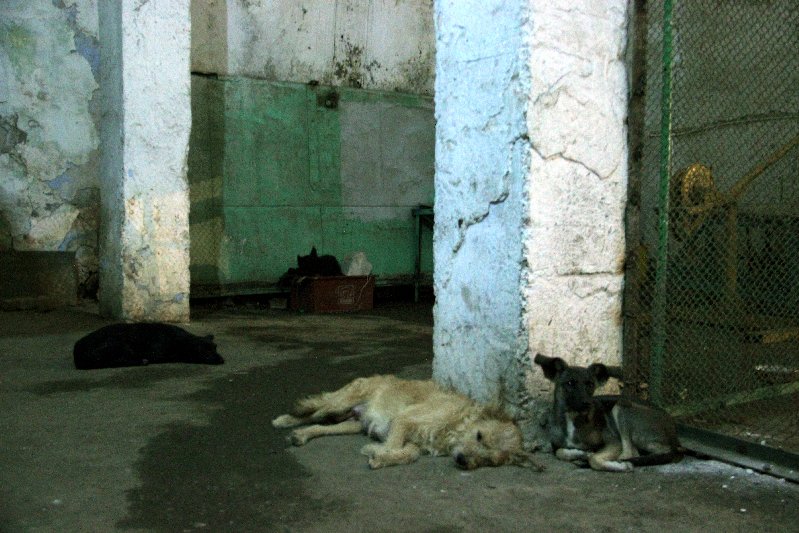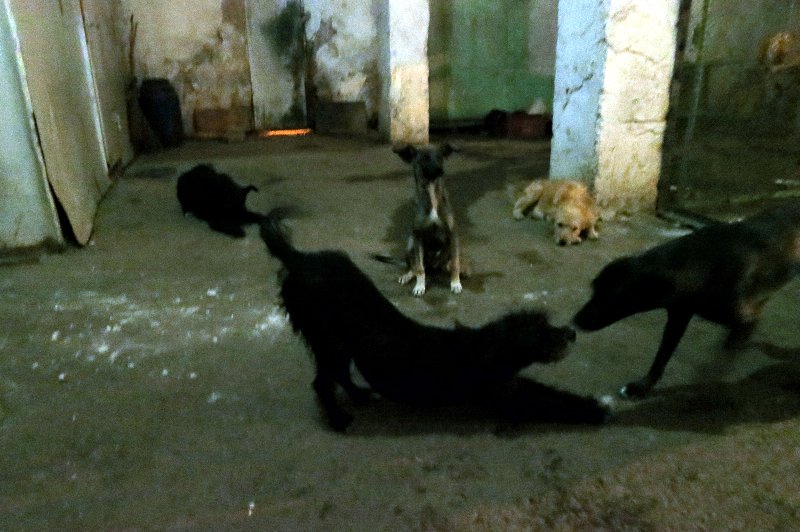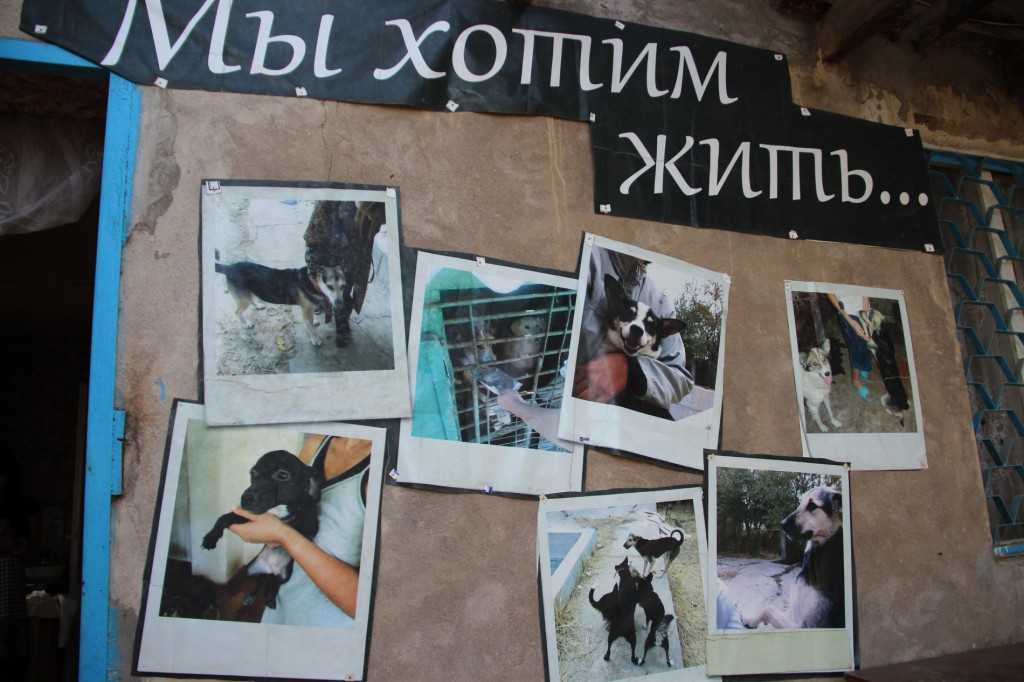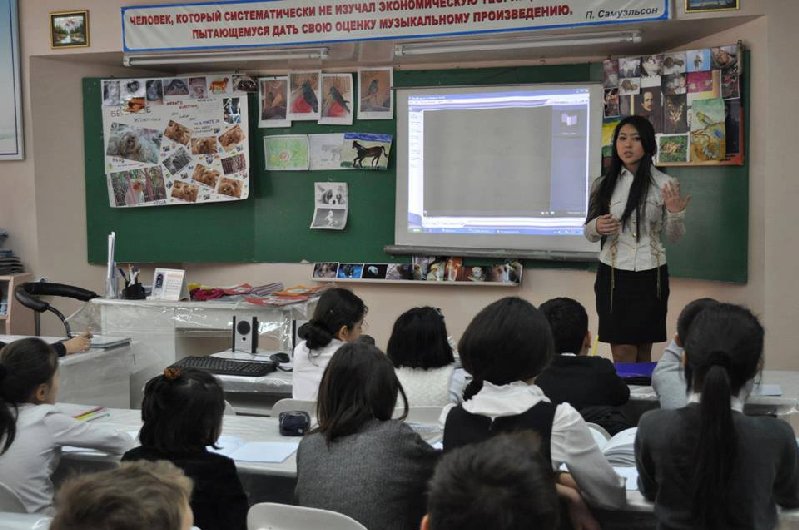A man is walking on the side of the road. He carries shopping bags in both hands. As soon as he sees a stray dog lying in the shade of a tree, he puts the bags down, picks up a stone and throws it at the animal. The dog is hit; it whines and runs away with its tail between the legs.
This is a scene as it may happen in many Central Asian countries. Stray animals live en masse on the streets and are a thorn in the flesh of people. In Tashkent, the capital of Uzbekistan, the number of homeless dogs and cats are estimated to be 120,000.
An enormous amount of puppies and kittens is offered for sale at Tashkent’s Jangiabod Bazaar. What cannot be sold ends up in the garbage or on someone’s plate.
If you look around in Uzbekistan, animals are treated like inanimate objects. Children in the suburbs of Tashkent, kill cats for fun, the adults let them. State dog catchers gather the animals and kill them simply with iron bars.
If the “discarded” animals survive, they become strays, as here in a warehouse next to the bazaar. Currently, it is estimated that approximately 120,000 homeless dogs and cats live in the region around Tashkent on the road.
Even now, more than 20 years after Uzbekistan became an independent country, the protection of animals is still a gray spot in legislation. “Mehr va Oqibat” translated “kindness and mercy”, is the first and only charitable organization that is committed to animals. From the idea in 2008 to the founding two years passed. The category “animals” did not exist in the bureaucratic system of Uzbekistan.
“We want to live” is written on the poster.
The young Uzbek woman explains in fluent German, that she does her work out of conviction. She loves animals. She, herself only owns a cat. For a dog she doesn’t have enough time. Nine months ago, she quit her job in the tourism industry in order to fully concentrate on charity work. There she doesn’t earn money no and relies on the support of her parents.
Madina explains the work of “Mehr va Oqibat” to theater visitors. The independent Ilkhom Theatre in Tashkent supports the work of the organization and has made room for an exhibition. Many people in Uzbekistan have never heard of animal welfare before.
Madina is on the road every day. She organizes exhibitions, talks with the authorities and coordinates relief operations. The young woman has a lot of energy and she needs it for her work. “Many people don’t know what an animal protection organization does. They ask for the impossible,” says Madina, “for example, we get calls from women with 20 cats who want us to find them a new apartment. In order to help people, however, there are plenty of other organizations.” Especially the frequent confrontations with the population drain the nerves, which is why many of Madina’s predecessors have resigned from office.
For Madina educational work in schools is one of the most important tasks of “Mehr va Oqibat”: “The children need to understand that animals are living beings that are able to feel pain.” Photo: Mehr va Oqibat
“Mehr va Oqibat” not only gets discontent but also a lot of recognition from the people. In particular, many young folks understand the necessity of animal welfare. Old people, for whom the pet is the only company are delighted with the support. Now the organization is also taken seriously by the government.
Mehr va Oqibat is working with several vet clinics to get stray dogs and cats fixed, like here at VDM clinic in Tashkent.
To get the problem with stray animals under control, “Mehr va Oqibat” works along with various animal clinics. There, dogs and cats are neutered at discount rates and the organization is trying to find new homes for them. Currently, they have no shelter, just a holding facility for a maximum of two weeks. It is difficult to open a long-term shelter in Uzbekistan: by law, no one may own more than two pets at a time.
Children threw stones at this dog and crippled one of its hind legs. At “Mehr va Oqibat’s” holding facility, the animal rights activists take care of it, until it has a new home.
Although the animal rights activists wish for more animal shelters, they don’t believe that shelters alone can resolve the problem. First, they want to establish a legislation requiring the sterilization of pets. “The number of stray animals continues to rise because people breed uncontrollably. The puppies or kittens, they simply throw on the street,” says Madina. Often lots of pups and kittens are available for sale at the bazaars. The surplus ends up in the garbage bin or as dinner, either for homeless people or in Korean restaurants.
So far “Mehr va Oqibat” had sterilized more than 400 animals. “This is a drop in the ocean,” says Madina, “we really wish for the support of major international animal welfare organizations. Especially donations are hard to find, in a country, where animals are worth nothing. ”
This boy pets a puppy for the first time, instead of kicking it. The image of animals is only slowly turning in society: from inanimate object to living being. Photo: Mehr va Oqibat
Here is the link to “Mehr va Oqibat’s” Facebook site.
Photos: Lochner (unless stated otherwise)
















[…] 2013. When my research on Uzbekistan’s first and only animal welfare organization in the capital is complete, I’m on my way to the Aral Sea. I take the 24-hour train to […]